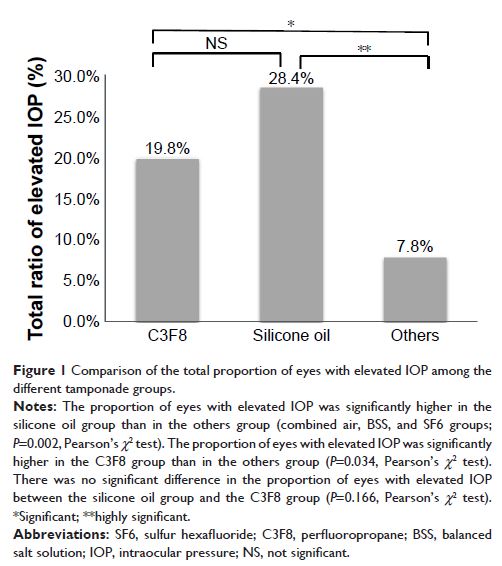108985
论文已发表
注册即可获取德孚的最新动态
IF 收录期刊
- 3.4 Breast Cancer (Dove Med Press)
- 3.2 Clin Epidemiol
- 2.6 Cancer Manag Res
- 2.9 Infect Drug Resist
- 3.7 Clin Interv Aging
- 5.1 Drug Des Dev Ther
- 3.1 Int J Chronic Obstr
- 6.6 Int J Nanomed
- 2.6 Int J Women's Health
- 2.9 Neuropsych Dis Treat
- 2.8 OncoTargets Ther
- 2.0 Patient Prefer Adher
- 2.2 Ther Clin Risk Manag
- 2.5 J Pain Res
- 3.0 Diabet Metab Synd Ob
- 3.2 Psychol Res Behav Ma
- 3.4 Nat Sci Sleep
- 1.8 Pharmgenomics Pers Med
- 2.0 Risk Manag Healthc Policy
- 4.1 J Inflamm Res
- 2.0 Int J Gen Med
- 3.4 J Hepatocell Carcinoma
- 3.0 J Asthma Allergy
- 2.2 Clin Cosmet Investig Dermatol
- 2.4 J Multidiscip Healthc

没有青光眼或高眼压病史的患者眼睛在接受玻璃体切割术 1 年后的眼内压
Authors Fang Y, Long QQ, Wang XQ, Jiang R, Sun XH
Received 27 June 2017
Accepted for publication 27 September 2017
Published 22 November 2017 Volume 2017:11 Pages 2091—2097
DOI https://doi.org/10.2147/OPTH.S144985
Checked for plagiarism Yes
Review by Single-blind
Peer reviewers approved by Dr Colin Mak
Peer reviewer comments 2
Editor who approved publication: Dr Scott Fraser
Objective: The aim of this study was to investigate the incidence, risk factors,
and treatment of elevated intraocular pressure (IOP) 1 year after vitrectomy in
eyes without a history of glaucoma or ocular hypertension.
Patients and methods: This retrospective study comprised 256 eyes from
256 consecutive patients without a history of glaucoma or ocular hypertension
who underwent vitrectomy and were followed up for 1 year. The incidence of
elevated IOP at 1 year after vitrectomy was calculated. We compared the
characteristics of patients with or without elevated IOP to identify possible
risk factors for elevated IOP. The treatments used to control IOP were recorded
and analyzed.
Results: A total of 50 patients (19.5%) had elevated IOP after
vitrectomy at the 1-year follow-up. Tamponade was a significant risk factor for
elevated IOP (P <0.05). The cumulative rates
of elevated IOP in eyes with air, balanced salt solution, sulfur hexafluoride,
perfluoropropane (C3F8), and silicone oil as the tamponade were 0, 10.8%, 5.9%,
19.8%, and 28.4%, respectively (P <0.05). About
68% of cases of elevated IOP occurred within 1 month after vitrectomy. At 1
year after vitrectomy, 29 patients (58.0%) had stopped their IOP-lowering drugs
and 21 (42.0%) patients were continuing these drugs. About 65% of ocular
hypertension patients who received silicone oil tamponade had not stopped
IOP-lowering drugs; this rate was significantly greater than that of ocular
hypertension patients who received C3F8 tamponade (18.2%, P <0.05).
Conclusion: Elevated IOP is a common complication after
vitrectomy. Silicone oil tamponade was associated with greater risk of elevated
IOP and had long-term effects on IOP. Drugs and surgery were used to control
IOP, and some patients required long-term IOP-lowering therapy.
Keywords: ocular
hypertension, vitrectomy, silicone oil, glaucoma
